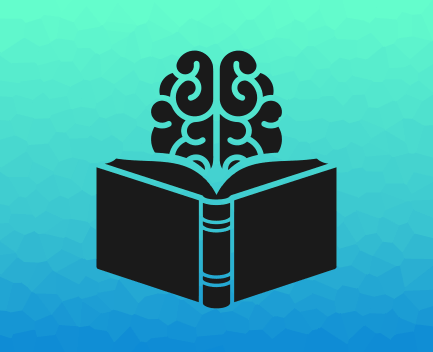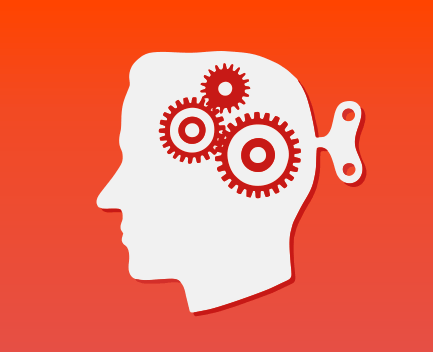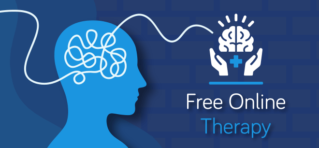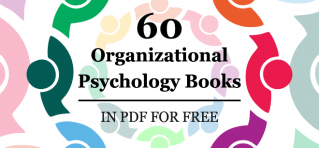Exploring Psychology in English: Study Materials & Tools
Learning psychology in English can be challenging for students who are not fluent in the language.
Being able to study psychology in a second language other than your native one is an increasingly essential skill in the era of globalization.
Many books, articles, and digital resources for studying psychology are only available in English, which poses a significant problem for students to excel or stay up-to-date.
This article provides useful tips and resources for psychology students to develop their learning skills in the English language.
We also discuss the main problems and challenges faced by psychology students when dealing with language difficulties and how to address these issues.
Strategies for studying psychology in a second language include improving speaking and listening skills, expanding vocabulary, and exploring language exchange opportunities.
The article offers a list of essential resources: textbooks, online courses, academic journals, and the top English language websites for studying psychology.
By utilizing appropriate techniques and resources, students will find that studying psychology in a second language can be a productive, enjoyable, and highly satisfying experience.
Tips for Learning Psychology in English
Learning psychology in English can be challenging, but with the right strategies and resources, you can make the most out of your learning experience.
Here are some tips to help you improve your English while studying psychology.:
- Build your vocabulary: Psychology has its own unique set of terms and jargon that may be unfamiliar to non-native English speakers.Take the time to build your psychology vocabulary by reading textbooks, articles, and other materials in English.
- Practice active listening: Listening to lectures and discussions in English can be challenging, but actively listening can help you retain information better.Take notes and ask questions to clarify your understanding.
- Use visual aids: Visual aids such as diagrams, charts, and graphs can help you understand complex concepts more easily.Look for visual aids in your textbooks or create your own.
- Join study groups: Collaborating with other psychology students can help you practice your English language skills and learn from others.Join a study group or form one with your classmates.
- Watch videos: Videos can be an excellent way to learn English and psychology at the same time, as you can watch and listen to lectures or demonstrations over and over again at your own pace.
By following these tips, you can enhance your learning experience and develop the necessary skills to succeed in psychology studies in English.
Vocabulary Building for Psychology Students in English
Building a strong psychology vocabulary is essential for understanding and communicating about the complex concepts in the field.
Here are some tips for building your psychology vocabulary in English:
- Read extensively: Reading psychology articles and textbooks in English is an excellent way to expose yourself to new vocabulary.Look for articles and textbooks that interest you and make a list of new words as you encounter them.
- Use flashcards: Flashcards are a useful tool for memorizing new words.Create flashcards with the word on one side and the definition on the other side, and review them regularly.
- Use online resources: Online resources such as Quizlet, Memrise, and Duolingo offer interactive vocabulary-building activities specifically designed for psychology students.
- Attend psychology conferences and events: Attending conferences and events in the psychology field is a great way to meet other professionals and learn new vocabulary in context.
- Practice using new words: Simply memorizing new words is not enough, it’s important to practice using them in context.Try using new words in your written assignments and discussions with classmates.
By consistently building your psychology vocabulary in English, you’ll become more confident in your understanding of the field and better equipped to communicate your ideas to others.

Common Terminology and Phrases in Psychology in English
Psychology has its own set of terminology and phrases that can be challenging for non-native English speakers to understand.
Below we present some examples of common terms and phrases you may come across:
- Cognitive dissonance: The mental discomfort that occurs when a person holds two or more conflicting beliefs, values, or ideas.
- Classical conditioning: A type of learning where a neutral stimulus is repeatedly paired with a stimulus that naturally elicits a response, eventually causing the neutral stimulus to elicit the same response.
- Self-actualization: The process of realizing one’s full potential and achieving personal growth.
- Social psychology: The study of how individuals interact with and influence each other in social situations.
- Behavioral psychology: The study of how behavior is learned and modified through environmental factors.
- Neuropsychology: The study of how the brain and nervous system influence behavior and mental processes.
- Psychoanalysis: A form of therapy that seeks to bring unconscious thoughts and feelings to conscious awareness.
When you become familiar with this type of psychological terminology, you will be better equipped to understand and communicate your ideas about human behavior in the English language.
Of course, these are just some examples, but there is an immense amount of scientific terminology in psychology in the English language.
We recommend consulting the following sources:
- Psychology Vocabulary English / Spanish.
- Behavioralpsycho.
- Lexicool.
- European Psychoanalytical Federation.
- Filadd.
Essential Resources for Studying Psychology in English
Studying psychology in English can be challenging, but there are many resources available to help you improve your language skills and deepen your understanding of the field.
These are the key resources that will allow you to improve your English language proficiency while studying psychology:
1. Psychology textbooks
Textbooks are a crucial resource for any psychology student, and there are many high-quality textbooks available in English.
Look for textbooks that are specifically designed for non-native English speakers, as these often include language exercises and activities to help you improve your English skills.
2. Online courses
Online courses in psychology can be a great way to improve your language skills while also deepening your understanding of the field.
Many online courses offer lectures, quizzes, and assignments in English, providing you with opportunities to practice your language skills in context.
3. Online dictionaries
Online dictionaries such as Merriam-Webster and Oxford Learner’s Dictionaries are excellent resources for improving your psychology vocabulary in English.
Look up new words as you encounter them and make a note of their meanings and usage.
4. Psychology journals and articles
Reading psychology journals and articles in English is an excellent way to improve your language skills and keep up-to-date with the latest research in the field.
Look for journals and articles that interest you and make a note of new vocabulary as you encounter it.
By utilizing these essential resources for studying psychology in English, you’ll be better equipped to succeed in your studies and communicate your ideas effectively in the field.

Best English-language Psychology Websites for Studying Psychology
Learning psychology in English can be made easier by utilizing the many educational resources available online.
Here are some of the best websites for learning psychology in English:
- Psychology Today. This website offers articles, news, and blogs related to psychology, as well as a directory of therapists and mental health professionals.
- Khan Academy. Khan Academy is a nonprofit organization that provides free online courses, lessons, and practice exercises in a wide range of subjects, including psychology.
- Verywell Mind. Verywell Mind provides evidence-based information and resources related to mental health and psychology, including articles and advice on topics like anxiety, depression, and relationship issues.
- TED Talks. TED Talks are informative and engaging lectures on a wide range of topics, including psychology.Many TED Talks are given in English, making them an excellent resource for improving your listening and comprehension skills.
- American Psychological Association. The American Psychological Association (APA) is a professional organization for psychologists in the United States.Their website offers a wealth of resources for students and professionals alike, including articles, research papers, and guidelines for ethical practice.
By using these websites, you can enhance your knowledge of psychology in English and stay up-to-date with the latest research and developments in the field.
5 Online Resources for Studying Psychology
When it comes to studying psychology in English, there are many online resources and textbooks available to students.
Online resources can be especially helpful, as they offer a wide range of information and can be accessed easily from anywhere.
Some of the best online resources for learning psychology in English include:
- Khan Academy, Khan Academy’s free online courses cover a range of topics, including psychology.Their videos and interactive quizzes make it easy to learn at your own pace.
- Coursera, Coursera partners with universities and organizations to offer online courses, including psychology courses from top institutions such as Yale and Stanford.
- Simply Psychology, This website provides free resources for students studying psychology, including articles, quizzes, and study guides.
- Psychology.org, Psychology.org is a comprehensive online resource for psychology students, offering articles, research papers, and information about psychology programs and careers.It also provides helpful tips on how to study psychology in English.
- OpenStax, OpenStax is a nonprofit organization that provides free, peer-reviewed textbooks for students in a variety of subjects, including psychology.Their textbooks are available online and can be downloaded for free.
3 Books to Study Psychology
In addition to these online resources, textbooks are also an essential part of studying psychology in English. Some of the best psychology textbooks in English include:
- «Psychology» by David G. Myers: This textbook covers a wide range of topics in psychology, including social psychology, personality, and neuroscience.It is a comprehensive textbook that is widely used in psychology courses.
- «Abnormal Psychology» by Ronald J. Comer: This textbook focuses on abnormal psychology, including psychological disorders like anxiety and depression.It provides a detailed overview of different psychological disorders and their treatments.
- «Social Psychology» by David Myers and Jean Twenge: This textbook provides an in-depth look at social psychology, including topics like social influence, attitudes, and relationships.It is a popular textbook used in social psychology courses.
By utilizing these online resources and textbooks, students can enhance their understanding of psychology in English and excel in their studies.
Whether you prefer to learn online or with a textbook, there are many resources available to help you succeed.

Advantages of Reading Psychology Books in English
When it comes to studying psychology, reading books in English can offer many advantages. Here are some of the benefits:
- Exposure to specialized vocabulary: By reading books in English, you will be exposed to the specialized vocabulary used in psychology.This will help you become more familiar with technical terms and concepts used in the field.
- Access to a wider range of resources: Many of the most important and influential books in psychology were written in English.By reading in this language, you will have access to a wider range of resources than if you only read books in your native language.
- Improved language skills: Reading in English can help you improve your overall language skills, including reading comprehension, vocabulary, and grammar.
- Better understanding of cultural context: Reading books in English can also provide a better understanding of the cultural context in which psychology was developed.This can help you better understand the historical and social factors that have shaped the field.
- Exposure to different perspectives: Reading books in English can expose you to different perspectives on psychology.This can be particularly valuable if you are interested in exploring different schools of thought or if you are studying psychology in an international context.
- Preparation for academic study: If you plan to study psychology at an English-speaking university, reading books in English can help you prepare for the academic rigors of this field.
In conclusion, reading books in English can offer many advantages for those studying psychology.
Whether you are looking to improve your language skills, gain a better understanding of cultural context, or prepare for academic study, reading in this language can be a valuable and rewarding experience.
PDF Psychology Books and Materials
One of the most valuable resources for studying psychology are the PDF books and content available online.
Whether you are a student or a practitioner in the field of psychology, having access to quality study materials is essential for expanding your knowledge and keeping up-to-date with the latest research.
The availability of psychology PDF books and content has made it easier for students and professionals to access valuable information and resources from anywhere in the world.
PDFs offer a portable and convenient way to store and access large amounts of information, allowing you to study on-the-go, highlight and take notes, and easily share information with others.
In this section, we will provide you with a curated list of the best psychology PDF books and content available for studying psychology in English.
We have carefully selected books and content that cover a wide range of topics, including cognitive psychology, abnormal psychology, social psychology, and more.
Whether you are looking for an introduction to psychology or advanced research studies, our list has something for everyone.
We understand that finding the right resources can be overwhelming, which is why we have taken the time to compile a comprehensive list of the best psychology PDF books and content available.
We hope that this list will make it easier for you to find the resources you need to excel in your studies and enhance your understanding of psychology.






